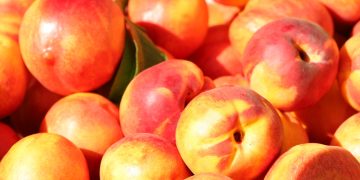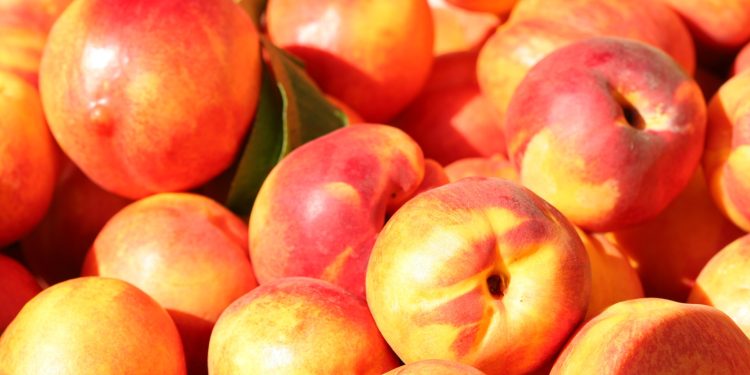#Russia #agriculture #phytosanitary #quarantine #MediterraneanFruitFly #pestcontrol #importedfruits #agriculturalsecurity #Turkishnectarines
In the summer of 2023, the Russian Federal Service for Veterinary and Phytosanitary Surveillance (Rosselkhoznadzor) discovered a concerning quarantine finding within a shipment of fresh nectarines imported from Turkey. On July 11, 2023, during a phytosanitary inspection at the control point managed by Rosselkhoznadzor for the city of Moscow, Moscow Oblast, and Tula Oblast, located at the KV-Terminal LLC, a consignment of approximately 7 tons of fresh nectarines (originating from the Turkish Republic) was found to contain the Mediterranean fruit fly (Ceratitis capitata (Wiedemann)), a quarantine pest for the Russian Federation.
The presence of the quarantine pest in a viable state was confirmed by laboratory analysis conducted by experts from the Federal State Budgetary Institution “All-Russian Plant Quarantine Center” (FSBI “VIZR”).
Subsequently, the owner of the cargo was issued a notification to take measures regarding the infected sub-quarantine product. As a result, the decision was made to undergo a process of disinfection.
In accordance with the phytosanitary legislation of the Russian Federation, the infested nectarines were subjected to disinfection by the “Republican Fumigation Detachment” (FKP).
Since the beginning of 2023, the Rosselkhoznadzor has recorded a total of 15 cases of detecting the Mediterranean fruit fly in imported nectarines.
The detection of the Mediterranean fruit fly in the shipment of fresh nectarines is a matter of significant concern for Russia’s agricultural authorities. The Mediterranean fruit fly is a notorious agricultural pest that can cause severe damage to various fruit crops, including nectarines. If left unchecked, an infestation of this pest could result in substantial economic losses for the Russian fruit industry.
Rosselkhoznadzor, being responsible for safeguarding Russia’s plant health and preventing the entry and spread of harmful organisms, has taken decisive actions to tackle the issue. Upon discovering the quarantine pest, the authorities promptly notified the cargo owner about the contamination, ensuring they take the necessary measures to address the situation effectively.
The subsequent decision to disinfect the infected nectarines was crucial in mitigating the risk of further spread of the pest. Disinfection procedures, carried out by specialized teams such as the “Republican Fumigation Detachment,” help eliminate the pest from the consignment, minimizing the threat to local agricultural ecosystems.
Consequences of Development:
The identification of the Mediterranean fruit fly in multiple consignments of fresh nectarines emphasizes the importance of strict phytosanitary measures in international trade. For Russia, this finding may have several consequences:
Increased Phytosanitary Scrutiny: Russian authorities might heighten their phytosanitary inspections for incoming shipments of fruits, especially from high-risk regions. This move aims to prevent the entry of further quarantine pests and protect the country’s agricultural interests.
Trade Relations Impact: The detection of a quarantine pest in imported products may lead to temporary trade disruptions with Turkey or other affected countries. Stricter controls and negotiations on improved phytosanitary protocols might be initiated to reestablish smooth trade relations.
Economic Implications: If not efficiently controlled, the Mediterranean fruit fly can cause yield losses and damage to fruit crops in Russia. This could result in increased prices for consumers due to reduced supplies and additional costs incurred in implementing pest control measures.
Exporting Country Measures: Turkey, as the exporting country in this case, may also face challenges in addressing the issue. They may need to reinforce their pest management strategies and collaborate with importing countries to prevent future incidents.
The discovery of the Mediterranean fruit fly in a shipment of fresh nectarines from Turkey has prompted swift actions by the Russian agricultural authorities. The implementation of rigorous phytosanitary controls and disinfection measures reflects the commitment to protect Russia’s agricultural sector from the threats posed by quarantine pests. However, the incident also highlights the need for continuous vigilance and international cooperation in maintaining global plant health security.































